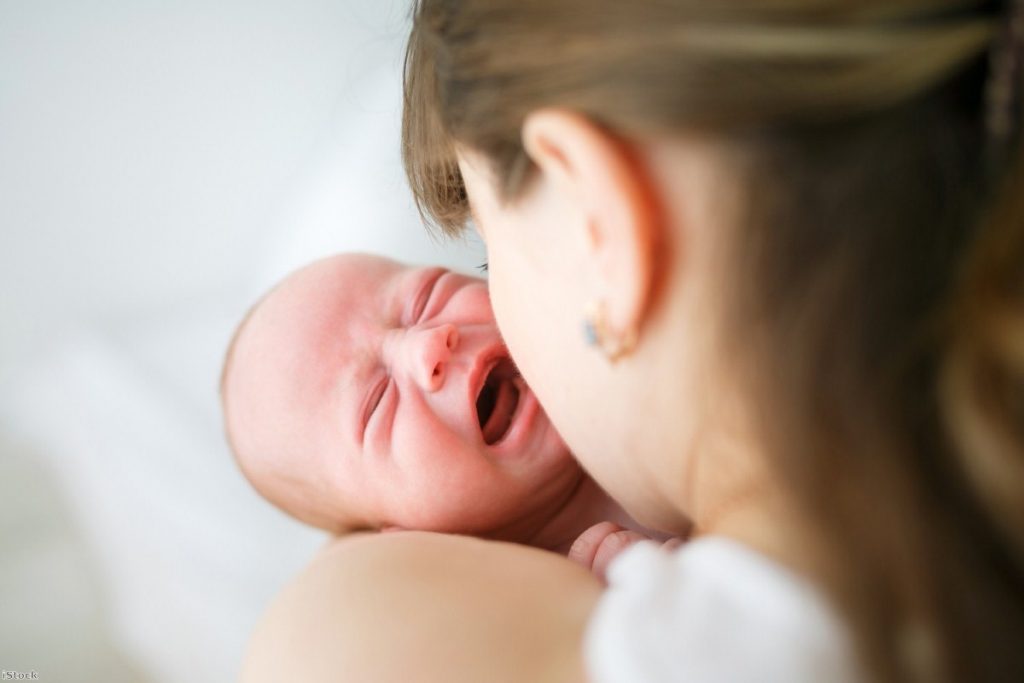We're all used to hearing about food banks, but far fewer of us will have heard about baby banks. Much like food banks, they receive donations from members of the public which are then given out to people in need. And, like food banks, more and more people are now turning to them for help.
It's a week before Christmas and Khadija is due to give birth any day. For most new parents this is the time to be packing a hospital bag full of tiny baby grows and blankets, and excitedly picking out an outfit to bring the baby home in. But Khadija doesn't have a hospital bag, she doesn't even have nappies or clothes for her new child.
All that changed yesterday when a worker from a local social club handed her a moses basket full of essential baby items.
"I was so happy, I just couldn't believe it," Khadija says. "I was crying and crying."


Khadija moved to the UK to join her husband, who is a refugee. She has no recourse to public funds, and, without this basket, she would have been left without even the most basic of baby items."

The types of women who need to use a baby bank varies. Volunteers at the organisations say young mums, women fleeing domestic violence, families affected by welfare cuts, and asylum seekers are the typical people who need help. Like a food bank, the women are referred to the charities by a third party, somebody like a midwife, social worker or doctor. The goods they provide include nappies, bedding, clothes, toiletries and sanitary pads for the mother.

Baby Basics was set up in Sheffield in 2009. It now has 25 centres across the country. Khadija was referred to the organisation by Katelyn Mckeown, the manger of the Open Kitchen Social Club in Sheffield. She says that rarely a month passes without her referring at least one woman to the service.
"There is no safety net for these women," she says. "Many would be left without these essential items if it wasn't for the charity."
I met Angie Kennedy, the manager of Baby Basics in Northampton, at the start of December. The week before, she gave out seven baskets to women in the area. She knows of four more who are due to give birth before Christmas, and need help.
Kennedy says they have had cases where women were not allowed to leave hospital until their basket arrived. "It can be the difference between a family staying together or not," she says.
"We recently helped a woman whose baby was sleeping in a drawer because there was nowhere else."
She also recalls a pregnant woman who had fled from a violent partner. She left so quickly that she couldn't take any of the items she had bought for the baby. She told the women's refuge that she was tempted to return to her abuser just so she had what she needed for her child. The basket provided by Baby Basics meant she didn't have to.
"There are gaps in the system that I strongly believe the state should be filling," Kennedy says.
It's a view shared by Laura Williams from the Baby Bank Network in Bristol.
"We hear from so many of the midwives and other professionals that they are just so grateful that they can now provide tangible help," Williams says. "Before, all they could offer was emotional support and advice, there was nowhere to send a family who needed things for a new baby."
Baby Bank Network was set up in the Summer of 2015. By the end of the year they had given out 100 packages to women in need. Today they average around 10 every week.
It's hard to know whether the surge in baby banks is down to an increased need or simply because of more awareness about the services. But either way, the need is there and without these charities, it would not be met. As the rest of us worry about buying presents and the be st way to cook the turkey this Christmas, there are mothers around the UK who are forced to rely on charity for even the most basic baby products.
Natalie Bloomer is a journalist for Politics.co.uk. You can follow her on Twitter here.
The opinions in politics.co.uk's Comment and Analysis section are those of the author and are no reflection of the views of the website or its owners.









